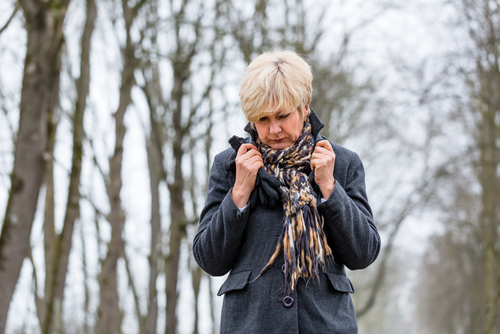
Seasonal Affective Disorder
Winter is here, so too are colds, viruses and for some: Seasonal Affective Disorder. It is a very real thing, when the weather gets cold and miserable, affected people become depressed and heavy-hearted.
What is Seasonal Affective Disorder?
It is a form of depression, seasonal because it is literally associated with the advent of a new season. Reduced sunlight and warmth, anticipation of long months of Winter and less social activity throw sensitive individuals into a prolonged state of melancholy. Conversely, and perhaps strangely there are also people who experience it in Summer months.
Symptoms of Seasonal Affective Disorder
The most common form is Winter induced SAD, with transient symptoms of depression which typically begin as the weather turns.
Symptoms include: fatigue despite increased sleeping, a feeling like ‘what’s the point of getting up’, eating more as a comfort means or to relieve a sense of boredom and low energy levels.
As the weather deteriorates the symptoms can escalate into mild irritability, further social withdrawal and minimal motivation to pursue goals and activities.
It lasts until signs of Spring are clearly evident, with more sunny days and a new sense of optimism about life which encourages action, ideas and interaction with others.
Get a diagnosis
The first port of call is the local doctor to ensure this is not something more long lasting and requiring more than symptomatic treatment.
A clear diagnosis of SAD allows you to engage in simple but effective treatment strategies. It is helpful for this to be overseen by your Doctor or Counsellor to provide a boost to motivation, otherwise you might be inclined to sink into bed and cover your head with the eiderdown. Telling a friend or family member you need a bit of help also means you are not completely going it alone.
Treatment for transient depression
When you’re sick: but not contagious, start a regular movie night or favourite musicals afternoon with someone you love. The key to coping with illness and transient depression is having something to look forward to each week, hence the regular plan.
Exercise, Exercise, Exercise
Exercise is the number one treatment, and walking the dog or walking outside in the fresh air with a friend will create a significant impact on SAD. It doesn’t matter if it’s cold or even raining, you will feel infinitely better when you arrive home. Exercise when you’re dealing with illness is really dependent on your own capacity. Even a slow walk around the garden once or twice a day will help. You are exposing yourself to fresh air, natural light and movement.
A Swedish doctor told my husband once, there is no such thing as being cold in Winter, you just haven’t got the right clothes. So buy some thermals and good walking shoes.
If you feel unsteady and are worried about slippery paths, get one of those new walking sticks with little feet on it. And if you are concerned about falling in the garden invest in a call-direct button that you can wear around your neck. For every problem there is a solution, so don’t let the problem become a road-block.
Light Therapy
‘Light therapy helps replace the lack of sunlight you are receiving. If you sit or work near a light therapy box, it mimics natural sunlight thereby affecting the brain chemicals related to mood and sleep.’(www.mayoclinic.com) Open your curtains and blinds up wide. So many people have half their windows covered and creep around in the shadows.
Oversleeping is a “No No!”
Don’t oversleep! Increased levels of melatonin from oversleeping cause symptoms of depression. Set your alarm, don’t have more than eight hours sleep, get up early and look at that first morning light. Open the curtains up wide, and if you can, go for a short walk around the back yard before you have breakfast.
Get back to Nature
Go out if you can. Arrange a stroll in the bush with friends, there is so much to do in South Australia (try Belair National Park or Mount Lofty Botanical Gardens); whale watching expedition to Middleton; a visit to the Adelaide hills, Clare Valley, Barossa or Port Elliot; or create your own curry night group. If you are limited by your poor mobility, book yourself on a bus tour and go with friends. They will be happy they were invited because sitting on your own in the house during Winter can get pretty tedious.
Over-Eating won’t help
Avoid over-eating by ensuring you have a yummy supply of healthy snacks including nuts, seeds and dried fruit. Cups of different kinds of tea are a comforting option instead of thick buttered toast drenched in honey with rich hot chocolate. That wasn’t a helpful analogy because that sounds great, so maybe just one piece!
Medication when all else fails
If nothing is working and you are really feeling miserable, go back to the Doctor and discuss the possibility of short term anti-depressants or something like St Johns Wort. Medications have their rightful place, but if you can first make the effort to treat yourself with the above suggestions you will be able to repeat this every year, starting early and preventing a situation where the symptoms have really taken over.
Erica Fotineas
June 2017
 08 8362 3033
08 8362 3033